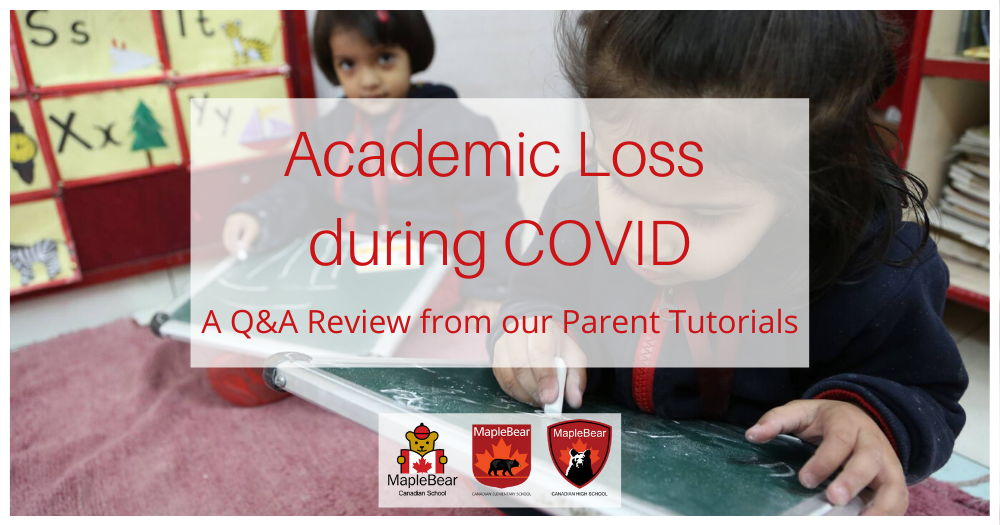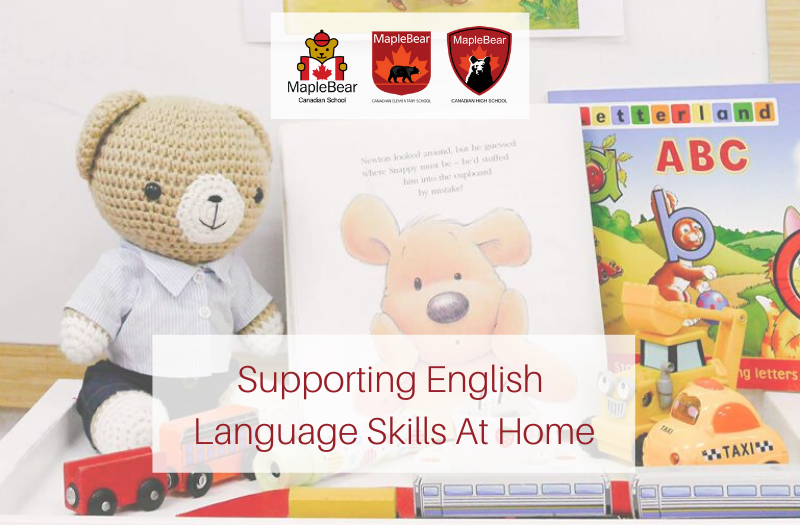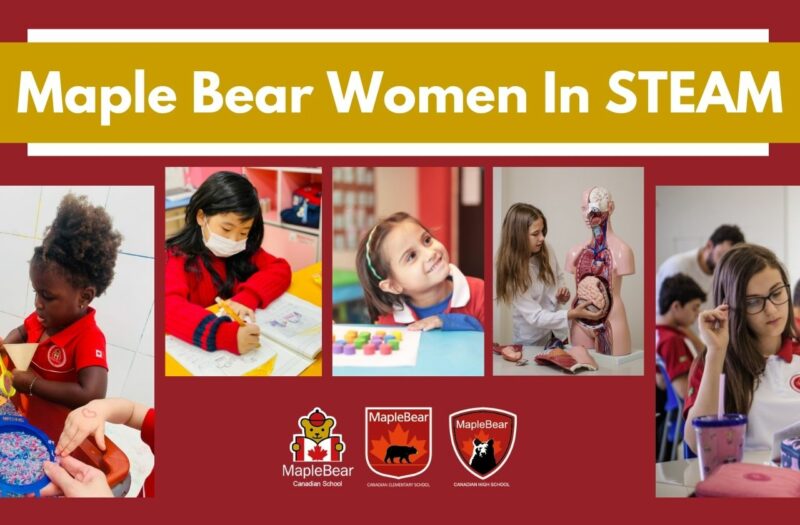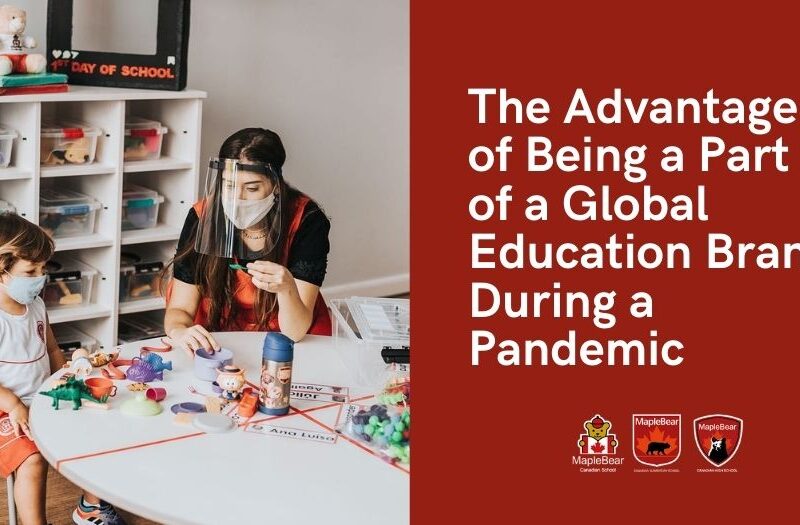
Academic Loss During COVID: A Q&A Review
Maple Bear Global Schools’ Co-Associate Academic Directors for Maple Bear Brazil recently held a series of online tutorials with our amazing parents in Brazil to share some academic strategies for the new world of online education. The topics covered to-date include routines as a way to reduce stress at home, playing and learning with your children and supporting English language skills at home.
The replays of these tutorials are available on our Youtube Channel at the links below:
Supporting English Language Skills at Home
Playing and Learning with Your Children
Family Routines
During these sessions, there were a number of questions which arose from the parents participating, and while questions related to the topic discussed each week were answered immediately and sent out, the following list of questions answered below are questions which were not directly related to the tutorial themes.
Check out our latest blogpost for simple, actionable advice from our Maple Bear Faculty on how to support your children’s learning at home.
More sessions are planned over the next few months, so be sure to stay tuned for details.
Questions and Answers About Academic Loss During COVID
Q: What is the impact on learning if the child is unable to follow the lessons and does not do the tasks? Do you think it interferes a lot in learning when you return to face-to-face classes?
Q: How can I help a child who is starting to learn the English language but cannot understand what is being said?
Answer:
If the child is not following the lesson or doing the required tasks, there will be an effect on his learning. If the problem stems from a lack of English language comprehension, you should conference with the teacher and request some specific support and suggestions for useful activities.
If the problem lies with the content being too difficult, definitely talk to the teacher and come up with some solutions together. The biggest loss will be in the actual acquisition of English. If he does not practice speaking English or is not listening to English, he will definitely find it a little more difficult to catch up when he returns to class. Try to provide exposure to English in forms your child might enjoy such as movies in English with Portuguese subtitles.
Q: Does distance learning work with children, or should we just expect not to lose connection with school?
Answer:
Attending the Digital Virtual Classroom regularly definitely helps the students maintain their English skills and of course their academic skills. Maintaining a connection with the teacher and the school is also important because positive relationships help children learn.
We can say that distance education as formal classes for young children is extremely difficult. It is not a good fit for very young children due to their limited attention spans and need for physical activity. However, a short friendly visit with the MB teacher is highly recommended to maintain the warm relationship and ease the eventual transition back to school. This regular meeting can also provide parents with plenty of fun activities that support developmental growth.
Most Elementary and Middle Years children have longer attention spans, but they are used to the wonderful active learning provided in MB classrooms. They have enjoyed and benefited from collaboration and positive interactions with teachers and classmates. And a second language is learned by speaking and hearing it regularly. This is not perfectly replicated in a virtual setting. Clearly, parents are expected to take a much more active role, which is very challenging in this crisis situation. Again, maintaining the connection and relationship with the MB teacher is essential, even if it is limited. We know you can’t replicate a MB classroom, but you can instil routines to make your home life easier and to get some valuable school work accomplished. Provide a safe structure, a schedule and familiar routines and maintain the positive relationship you already have with the school.
The schools have been developing plans to compact the curriculum so that important concepts are learned, even if units are shortened. MB teachers will build upon what has been accomplished in the virtual learning environment, assess each child diagnostically, and adjust the lessons, activities and assignments to the particular needs of the students.
Q: Perhaps, in the second semester it is possible to increase the workload to replace these lost materials? In the case of children who are in the literacy phase, for example, who are unable to have autonomy for online learning and without support?
Answer:
Just increasing the workload is not an educationally sound practice, and simply creates unhealthy stress on children and parents. It is important for teachers to select the appropriate work that addresses essential concepts, not simply pile on assignments. This is not how student-centered pedagogy works. Instead, assignments and classwork will be focussed on outcomes, and based on identified gaps and needs. Teachers can address the concepts in multiple ways, and compress the unit plans effectively. Assessment and evaluation will then be based on what the child has learned, not on an artificial content goal.
Q: I speak English fluently and I’m reading most of his English activities and stories out loud. I notice he fully understands it with all the correct intonation and punctuation. But when reading by himself, he loses most of the content. He’s in 5th grade. Is it expected at this moment?
Answer:
He is still at the decoding stage in his reading development. Talk to the teacher about reading comprehension strategies. There are many strategies available to support growth in reading comprehension. In the meantime, continue your fluent and expressive reading, as this is excellent modelling and a needed support to your child.
Q: If the children are not old enough to take a live class alone, with 6 and 7 years old, how can parents be “classmate” while taking care of 3 younger siblings (5, 2 years old and 7 months old baby)?
Answer:
There is no magic solution to this predicament. All you do is try your best. Be in close proximity with the child taking the lesson, baby in a highchair, and help if you can. Some suggestions regarding the younger children:
- The 5 and 2-year-old children might enjoy pretending to be part of the class. Encourage this imaginative play. Give them notebooks and pencils and encourage them to be “good Elementary students”.
- Try to set the younger children up with a favourite movie while you and the baby attend class.
Q: This first time, do you think a 7-year-old child needs help from his parents or just to show the routine is enough and be there only when is called?
Answer:
You should do the routine with your child until he is comfortable with it. Then you can start to release more responsibility to him and respond when he has questions. Praise him for being responsible. Keep in touch with the teacher.
Q: For children in the Middle Years, one difficulty I see with online classes is that there is no way to know if the child has completed every lesson of the day. Will parents have to accompany their 11 to 12-year-old son to see if he has finished the day’s class? If he is asked, he says: yes! Only when the teacher sends the report at the end of the month do parents see that their child did not attend any of the recorded classes nor attended the classes, and did not complete their lesson activities. Then problems arise, they get angry because they will have to do the lesson again, when they could be playing, they complain that they are forced to study at play time. You would need to include a system that controls whether or not the lesson activities have been completed. How to solve this situation, take classes with him, all the time?
Q: I always leave my daughter doing the activities proposed in the video classes, alone. But I always check to see if she did what was proposed, and I see that she just copies the answers that the teacher uses as an example. What should I do? Redo the activities with her?
Answer:
Middle Years children crave autonomy and resent being treated with mistrust. They like to test the limits. All of this is developmentally appropriate. Of course it is concerning when you suspect your child is not taking responsibility when given autonomy. Some suggestions:
- Stick to a set time for school work, with no distractions (no phone, for example). If your child says he has finished the assignments, he is expected to do some reading until the time is up. No exceptions to this routine.
- The teachers will be recording what assignments your child has done or not done. If you are concerned that your child is not keeping up with the expected work, do not wait until the end of the month to contact the teacher. Arrange a weekly update. It should be possible for the teachers to let you know what your child has completed, and what is not yet finished.
- Instead of getting into a battle with your child, tell him you expect him to take responsibility for the school work assigned, and to use the scheduled school time appropriately. Also explain that you have arranged for regular updates from the teachers.




